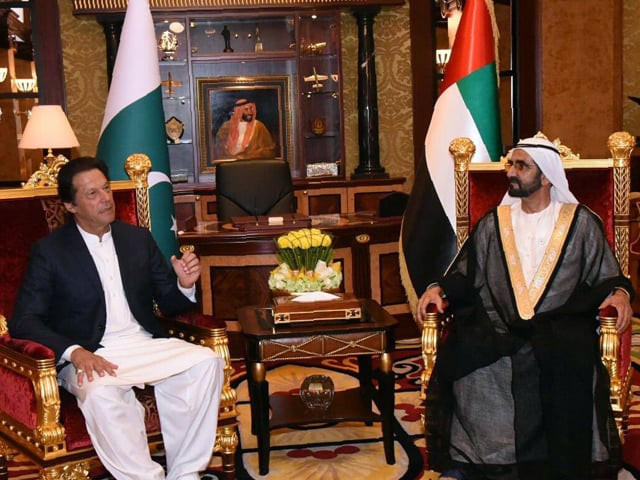Pakistan confident UAE will rollover $1b loan
IMF has described rollover of loans critical for Pakistan’s external debt sustainability

The finance ministry has said that it is “confident” that the United Arab Emirates (UAE) will rollover the $1 billion loan that matured on Friday, quelling reports that Dubai had withdrawn the financial support.
The $1 billion loan was part of the $6.2 billion initial bailout that the UAE had announced in late 2018, helping the government of Prime Minister Imran Khan to avoid default on international debt obligations.
“Pakistan and the UAE are great friends and we are confident of a rollover”, Finance Secretary Kamran Ali Afzal said, while responding to a query whether the UAE extended $1 billion support for one more year.
The loan matured on Friday. A senior ministry official said that the money was not going back and the UAE has informed Pakistan that it would rollover the $1 billion.
Read: PM, Abu Dhabi crown prince speak over phone
Out of the committed $6.2 billion, the UAE disbursed $2 billion. It did not make the $3.2 billion oil financing facility and also withheld last $1 billion cash disbursements.
Finance ministry sources had told The Express Tribune that less disbursements by the UAE as against the commitments were because of Pakistan’s decision to avail $500 million cash support from Qatar.
The UAE has already rolled over $1 billion deposit for another year, which matured in January this year. The UAE decision to rollover its loans provided a breathing space to Pakistan.
The financial assistance packages announced by Saudi Arabia and the UAE helped Pakistan to buy time to negotiate a deal with the International Monetary Fund (IMF). But the implementation of the IMF deal is also stalled for last 13 months, which is now expected to be revived in the fourth week of this month.
Pakistan had returned the Saudi loan by securing three different financing pipelines from China. Beijing gave $1 billion as soft loan, a credit-swap financing line of $1.5 billion and $500 million commercial loan from the Industrial and Commercial Bank of China.
The Chinese assistance helped the State Bank of Pakistan’s (SBP) in maintaining the gross foreign exchange reserves of around $13 billion.
The government is currently implementing various conditions to revive the stalled IMF programme. Subject to meeting all these conditions, the IMF Executive Board might approve the next tranche on March 24th.
As part of the IMF conditions, the government is amending the State Bank of Pakistan Act of 1956. One of the clauses of the new bill relates to definition of the monetary liabilities of the central bank. About $4.5 billion Chinese loans taken in the shape of credit swaps are not part of the external public debt of the country.
Read more: Saudi Arabia, UAE retain $2b financial support
The government has proposed a new definition of “monetary liabilities”, which will transfer such liabilities of the central bank on the books of the federal government. The monetary liabilities are proposed to be calculated by reducing the sum of “deposits of the government, amounts owing to the IMF, the WB, the ADB or other such instruments, deposits of foreign central banks or sovereign wealth funds, utilised swap lines of foreign central banks and balance of participant central banks under any clearing union”.
Before formally approving the $6 billion bailout package in July 2019, the IMF had assured commitments from the UAE, China and Saudi Arabia that these countries would not withdraw their financial support to Pakistan during the IMF programme period, according to the sources.
In its reports, the IMF has described rollover of these loans critical for Pakistan’s external debt sustainability, as the country remains unable to enhance its exports that can replace these loans.



















COMMENTS
Comments are moderated and generally will be posted if they are on-topic and not abusive.
For more information, please see our Comments FAQ